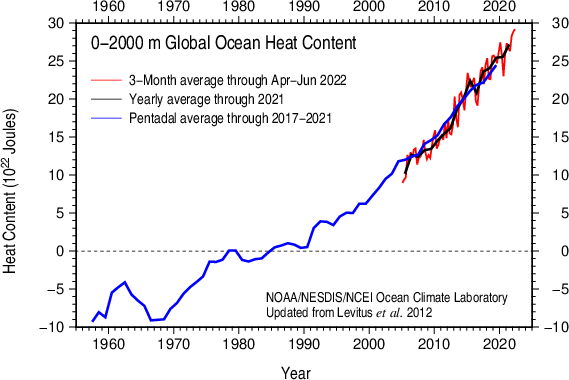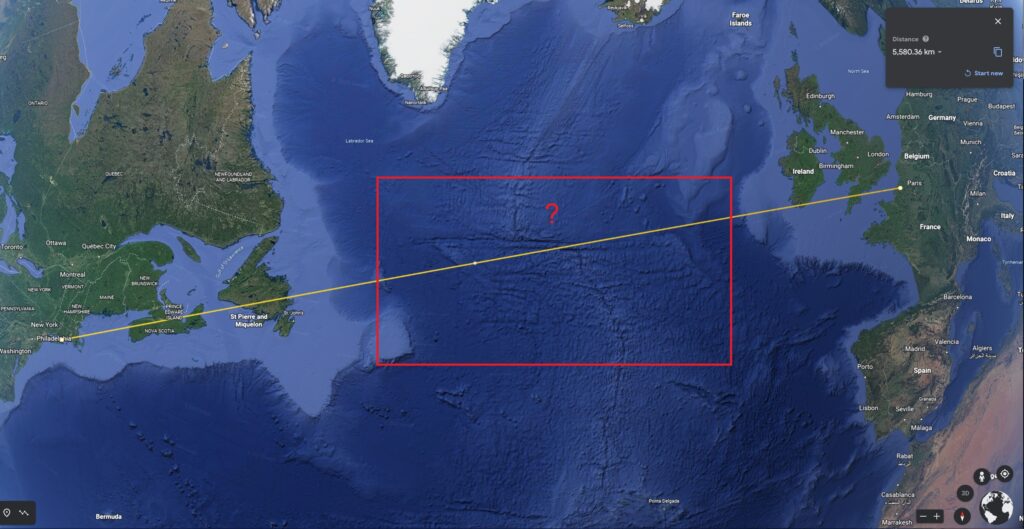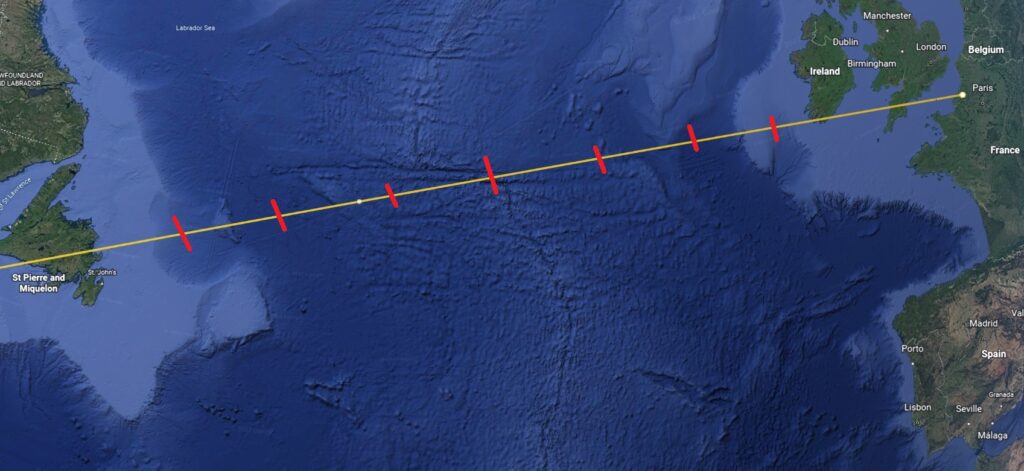It seems the expectation of the fossil industry before was total collapse of cililixstion due to climate change and fossil fuel shortages some time around 2030. This now seems to be cut short because there is a real drive to reduce fossil fuel dependence. Liz Truss just kicked out of Nr. 10 Downing Street, Putin in hot water, NordStream cut, Saudi Arabia is cutting US supplies, economies are throttling down. Flights are reduced. This is all very necessary.
To deal with the real challenge we have to look at our ‘solar intake’ (what amount of solar energy we keep on Earth, which depends on the reflection of light also called the Albedo). Today we absorb too much, we radiate less because of greenhouse gasses. This results in ocean temperatures rising, and this in turn means air temperatures will rise.

The above graph shows what’s going on. The heat content of our oceans is rising, and this is not good. In the past the oceans have stratified (hot layer on top of cold layer) and this locked nutrients in down below, and this meant no life in the oceans except near the coasts, where mixing could take place and iron provided oxygen (with or without life). But before this phase was reached the oceans became highly toxic, as all the oxygen was lost and anoxic organic processes took hold, like which happen in a swamp. At the end of the Permian era this led to the biggest extinction in the oceans AND on land, because the toxic gas H2S was released that blew over land. Oxygen breathing species can’t survive high H2S concentrations. Besides the oxygen production slowed down significiantly.
also read Glass to Fast-Track Hyperloop
So we need to go to work to keep our oceans alive and oxygenated. This is no mean task if it can be accomplished. Physically though it can be done. The energy is there, all the materials we need are there. Water, carbon, nitrogen, we can make all the polymers needed for floating structures. We can grow crops on them, if we need silica we can get it easily. Also salt water concrete is super strong, so this might help us..What I am talking about is a base in the middle of the Atlantic Ocean.

There has to be one soon, because we will want to fly electrically, or use hyperloop for transatlantic travel, This is only possible using waystations at first, so we will need a couple of floating islands at sea. The MidAtlantic is interesting because it has a ridge, the dept is less, there are even islands.
The kind of transportation modes are flying, but that will be limited to propellor engines, which are rather slow. Then there’s hyperloop, then there’s ground effect aircraft. All will need charging. Now the reach of the longest range airplane is 500 km, which would mean 6 landing to recharge on the route to New York as the shortest route would be around 3000 km over water.

The ocean is super violent, and storms are getting more violent, but can’t human build something that is big and heavy and can turn the ocean into a workable environement, an airport even? I think we can. These basis can then also be used to do things like generate oxygen and insert it into the deep ocean. The more we use the ocean, the more we cover it, the more we protect it against warming. Even if it is rediculously large, it is time for humanity to venture into this space.